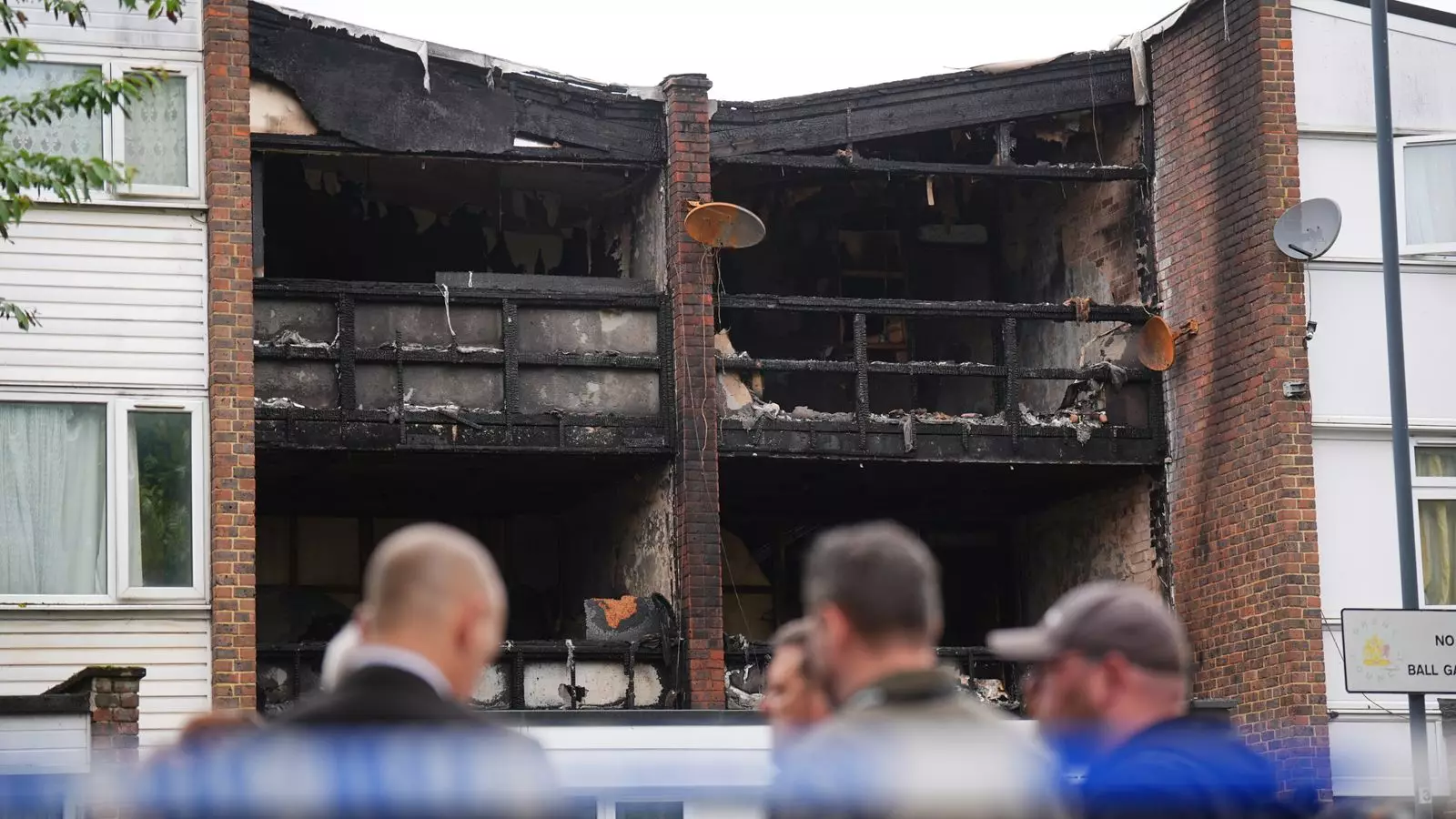In the stillness of a London night, tragedy unfolded – a community shattered, a family extinguished, and innocence lost in a devastating house fire in Brent. The harrowing incident has ignited numerous questions, sparking discussions that go beyond the immediacy of emergency response. A 43-year-old woman and three children – a 15-year-old girl, an eight-year-old boy, and a four-year-old boy – fell prey to the flames that enveloped their home early one fateful morning. This is a moment that will forever etch itself into the collective memory of a neighborhood known for its strength and togetherness. Yet, it is also a bitter reminder of the vulnerabilities that lurk beneath the facade of suburban stability.
The Response and Investigation
As sirens filled the air and flames licked at the night sky, first responders rushed to the scene. The London Fire Brigade deployed eight fire engines and nearly 60 firefighters to combat a blaze that had rapidly engulfed two adjoining properties. Assistant Commissioner Keeley Foster bravely recounted the audacious efforts of firefighters who risked their lives to rescue two victims from the second floor – a vivid image that complements the despair of a community witnessing the unthinkable. While the immediate firefighting efforts were commendable, one cannot help but ponder the deeper issues at play: what preventative measures were in place to avert such devastation?
The astonishing speed at which this fire accelerated leaves one grappling with the implications of building safety and community resources. Local authorities must reflect on the strategies employed to safeguard residences from similar calamities. A human life is worth infinitely more than a bureaucratic statistic. Moreover, the arrest of a 41-year-old man at the scene introduces different facets of this tragedy—one that insists on delving deeper into the fabric of our society. Is this merely an isolated incident, or does it reflect a growing malaise of disenfranchisement and crime that afflicts many neighborhoods across London?
The Community’s Shock and Resilience
Witness testimonies reveal a corner of the world that seemed insulated from fear and violence. Neighbors such as Mohamed Labidi echoed sentiments of disbelief and heartbreak. “They’re very good people, no problems on their side at all,” he expressed, his words teetering between nostalgia and sorrow. In these moments, we witness the duality of humanity: the capacity for great love and incredible loss intertwined, leaving residents reeling in the aftermath. The discomfort of assimilation into an otherwise peaceful community starkly contrasts the grief that pours in from all sides.
Yet what becomes of a community when faced with such inconceivable loss? Are we merely passive observers in these tragic events, or do we stand to forge a path toward resilience? The very air may feel thick with sorrow, but it is crucial that residents band together to confront both emotional and systemic issues arising from such a catastrophic event. Community gatherings, support initiatives, and open forums can serve as platforms for healing and rebuilding the very spirit that may feel fractured in this moment of despair.
Voices of Leadership and Accountability
Political leaders, including Mayor of London Sadiq Khan, have stepped into the conversation, but the response from our elected officials must extend beyond condolences. Khan’s expression of sympathy, while well-intended, begs the question: what specific actions will be undertaken to ensure that such tragedies become a relic of the past? It is not enough to express sorrow; leadership demands a proactive stance—a commitment to enhance fire safety protocols, improve emergency response times, and ensure that the socio-political climate does not exacerbate the vulnerabilities of our communities.
Moreover, there is an inherent responsibility on the part of lawmakers such as local MP Dawn Butler to champion reforms that address the socio-economic factors contributing to such tragedies. The lamentation of our collective loss must give way to actionable discourse aimed at re-establishing a sense of security and belonging among constituents.
Reflections on Collective Guilt and Responsibility
Ultimately, these incidents thrust us into a reflective space where we must reckon with our collective guilt. As we mourn the lives lost, it’s essential to confront uncomfortable truths about our own roles within the community and the structures that surround us. Are we doing enough to foster environments where families can thrive without fear? This tragic fire serves as a wake-up call—a beacon of urgency that demands attention, advocating for long overdue dialogue on safety, community support, and the inherent responsibilities we carry toward one another.
As this community rebuilds from the ashes of despair, it becomes critical to scrutinize the systems in place that foster such devastation, ensuring that the warmth of a neighborhood isn’t extinguished by neglect or inaction. Perhaps, in the depths of this sorrow, we can forge a new commitment—to listen, to learn, and ultimately, to prevent more tragedies from unfolding in the shadows of our streets.



Leave a Reply